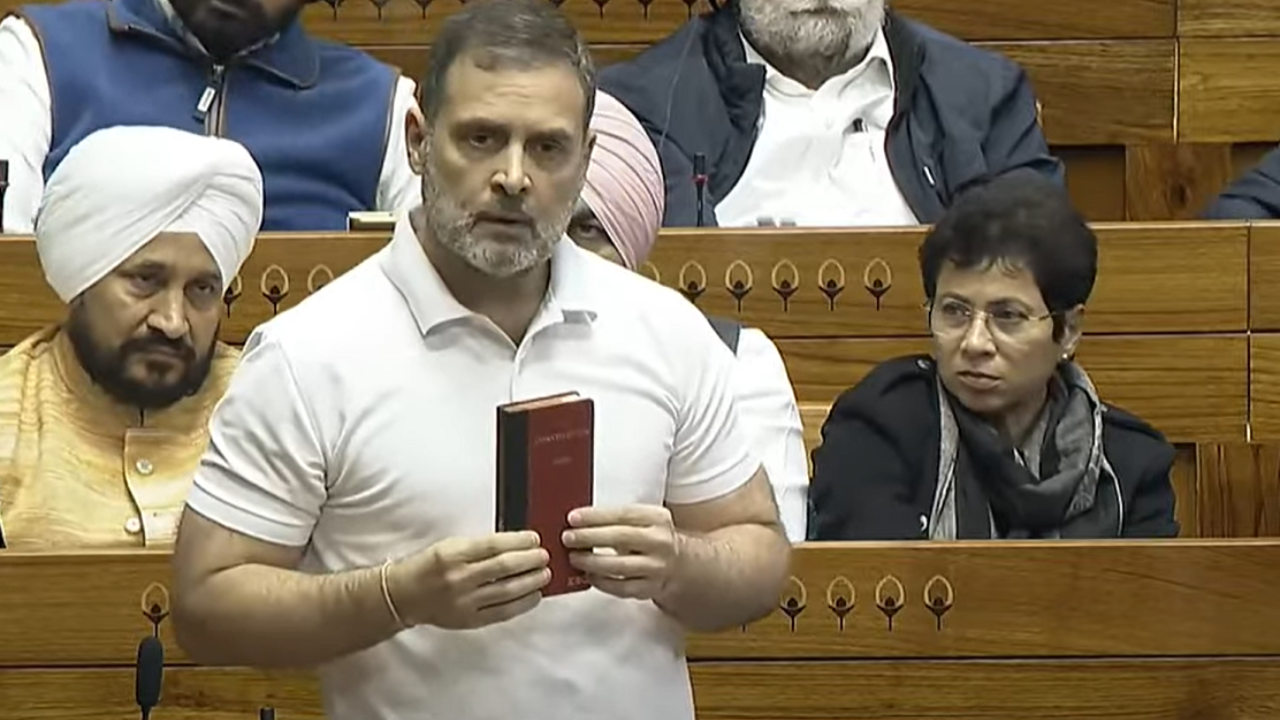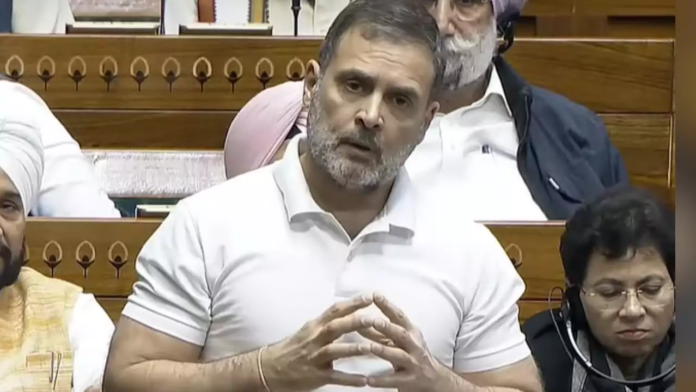Rahul Gandhi, the leader of the opposition in the Lok Sabha, inadvertently caused laughter across the House on Saturday when he misquoted an episode from the Mahabharata during a debate on the Constitution. Gandhi referred to Eklavya, a character from the Hindu epic, as a “young man” instead of a child, drawing amused reactions from NDA MPs.
The Misstep That Sparked Laughter
While narrating the story of Eklavya and Dronacharya, Rahul Gandhi mistakenly described the 7-year-old Eklavya as a “yuva” or youth. This slip of the tongue quickly caught the attention of NDA MPs, who broke into laughter at the unexpected gaffe. Gandhi had been making a larger point about the plight of aspiring youth in modern India, referencing exam paper leaks and the government’s alleged neglect.
Eklavya and the Thumb Allegory
In his speech, Gandhi attempted to liken the government’s actions to the cutting off of Eklavya’s thumb in the Mahabharata, a symbolic reference to the challenges faced by aspiring youth in India. “Thousands of years ago in a dense forest, a ‘yuva’ … a ‘yuva’ of 6-7 years of age,” Gandhi began, but his phrasing triggered laughter across the Lok Sabha.
Gandhi also connected the story to recent controversies, alleging that the government’s negligence was metaphorically cutting off the thumbs of India’s young talents, especially amid rising unemployment and concerns over educational standards.
A Political Dig at Savarkar
Rahul Gandhi’s speech didn’t end with the Eklavya story. He pivoted to a critique of VD Savarkar, questioning his contributions and ideological stance. This remark sparked protests from BJP members, further adding to the charged atmosphere of the debate.
Reactions Across the Political Spectrum
The Congress benches defended Rahul Gandhi’s analogy, emphasizing the larger issues he was highlighting. However, BJP leaders seized on the opportunity to mock the opposition leader. “This is not the first time Rahul Gandhi has confused his facts. It’s entertaining but concerning,” quipped an NDA MP during a press interaction.
Symbolism or Slip-Up?
Political analysts have weighed in on the incident, describing it as a moment that showcased both Gandhi’s rhetorical style and occasional lapses in precision. While his broader point about the struggles of Indian youth resonated with some, the gaffe diverted attention from the critical issues he sought to highlight.
The Role of Mythology in Politics
This episode underscores how mythology often features in Indian political debates. From Gandhi’s Eklavya analogy to BJP leaders quoting texts like the Ramayana, references to epics remain a powerful rhetorical tool in the Lok Sabha. However, as seen with Gandhi’s gaffe, these references can sometimes backfire, drawing criticism instead of applause.
Public Reactions and Social Media Buzz
Social media erupted following the Lok Sabha proceedings, with hashtags like #RahulGandhi and #YuvaGaffe trending on platforms like Twitter. While Congress supporters defended Gandhi’s speech as an effort to highlight critical issues, detractors used the opportunity to call out his error, with memes and videos of the moment going viral.
Implications for Rahul Gandhi’s Leadership
The incident, while seemingly minor, raises questions about Rahul Gandhi’s public image and his ability to effectively communicate in Parliament. As the leader of the opposition, his speeches carry significant weight, and such gaffes often become fodder for political opponents.
As the Winter Session continues, all eyes remain on Rahul Gandhi and how he navigates the challenges of parliamentary debates and public scrutiny.


